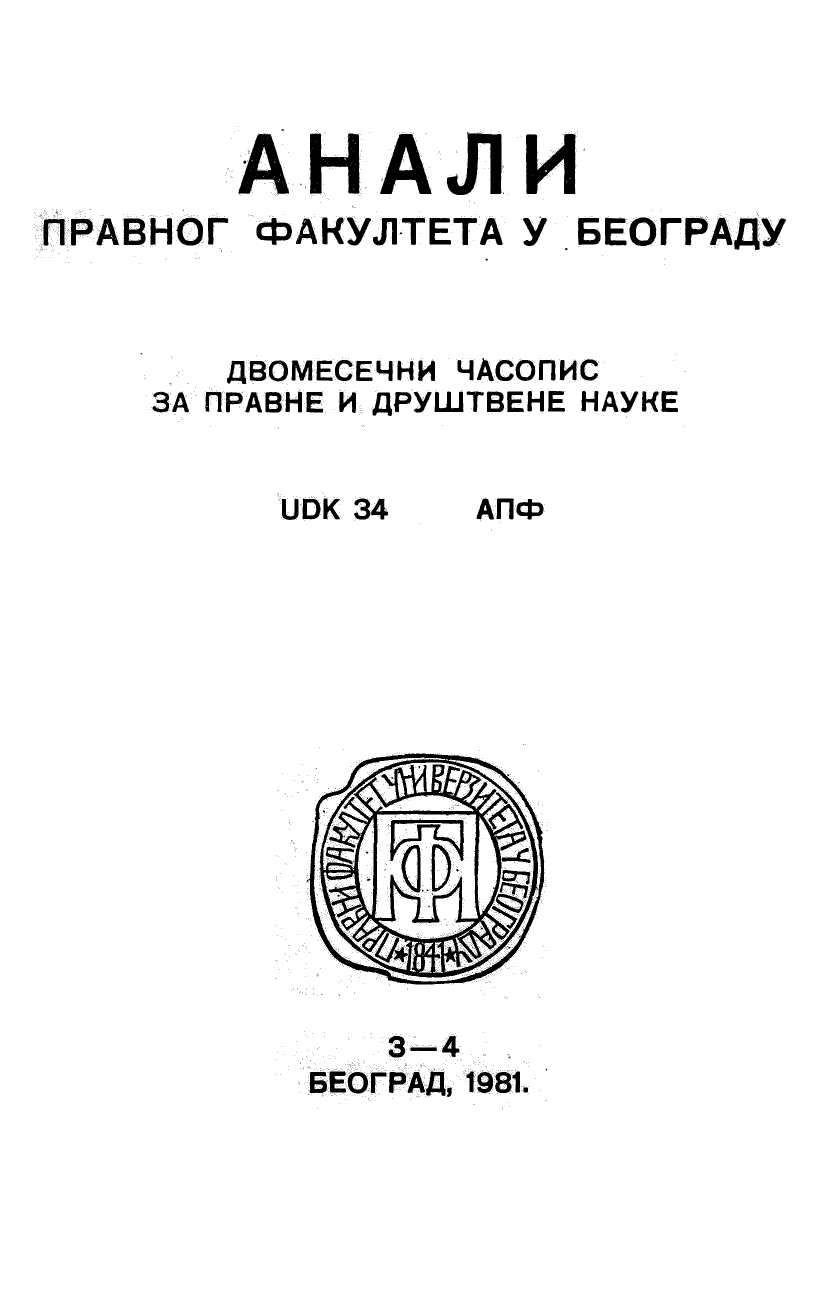НАКНАДНА НЕМОГУЋНОСТ ИЗВРШЕЊА УГОВОРА У МЕЂУНАРОДНОМ ЈАВНОМ ПРАВУ
THE SUBSEQUENT IPOSSIBILITY OF EXECUTION OF CONTRACTS IN INTERNATIONAL PUBLIC LAW
Author(s): Milenko KrećaSubject(s): Law, Constitution, Jurisprudence, International Law
Published by: Правни факултет Универзитета у Београду
Summary/Abstract: This article deals with three questions in particular: a) the independent character of subsequent imposibility of execution as the basis of termination of international contracts; b) the forms of subsequent impossibility of execution; c) the consequences of this subsequent impossibility. These questions are analysed in respect of the theoretical views and solutions determined by Article 61. of the Convention of The Law of Treaties. There follows a critical appraisal of the views which identify the subsequent impossibility of execution with the clause „rebus sic stantibuss' and the errar in respect of the subject of the contract. In that context, it is especially pointed to the differences between the subsequent impossibility of execution and the clause „rebus sic stantibus” not only from the legal and technical but also from the legal and political point of view. As to the forms of subsequent impossibility theories relating to the physical, sociological, moral and legal impossibility of execution were analysed. The conclusion was that there was justification only for the acceptance of physical and legal impossibility of execution in positive international law. Furthermore, the article offers a critical analysis of the solutions provided in the Convention on the Law of Treaties. On the one hand, it is emphasised that the weakness, of the concept of physical impossibility of execution resulting in the circumstance linking the concept to the „force majeure”, has not been accurately or precisely defined in international law, so that there does not have to be an absolute identity between the „force majeure" and the subsequent impossibility of execution. On the other hand, there is a critical analysis of the solution offered by the Convention, which does not consider the inconsistency between the contract and the newly created norm of a peremptory character, of the general international law, as a form of subsequent impossibility of execution. The effect of this newly created peremptory norm (jus cogens superveniens) is a case of legal impossibility of execution, for the treaty which is adverse to that norm becomes null and void according to objective law, irrespective of the will of the contracting parties. This article also gives an extensive analysis of the articles of the Convention regulating the consequences of subsequent impossibility of execution. In that context, it is underline that Articles 64, 66 and 71. do not have a residual character, as determined in the general provision of Article 42 (2) when they are in the function of the implementation of sanctions provided by Article 64 of the said Convention. In other words, in the cases of legal impossibility of execution, the cited Articles of the Convention have a peremptory, cogent character.
Journal: Анали Правног факултета у Београду
- Issue Year: 29/1981
- Issue No: 3-4
- Page Range: 281-300
- Page Count: 20
- Language: Serbian

